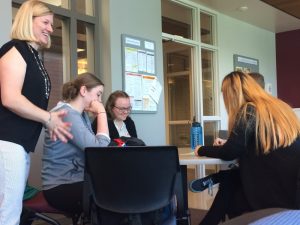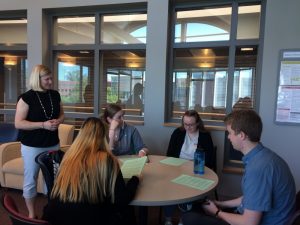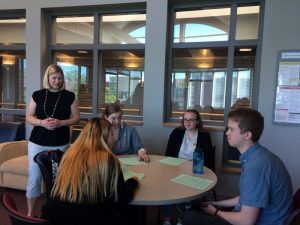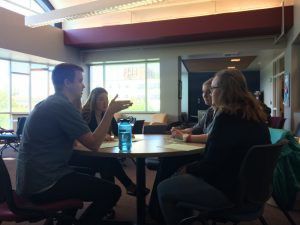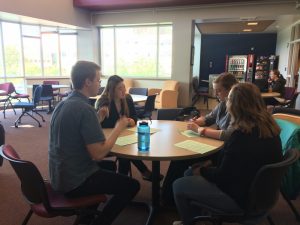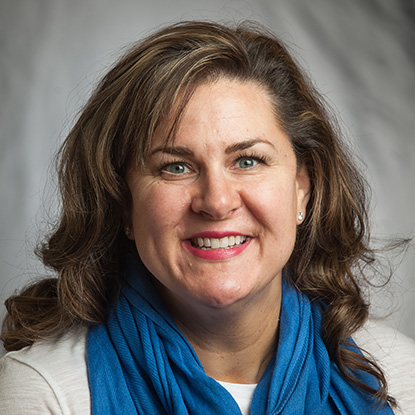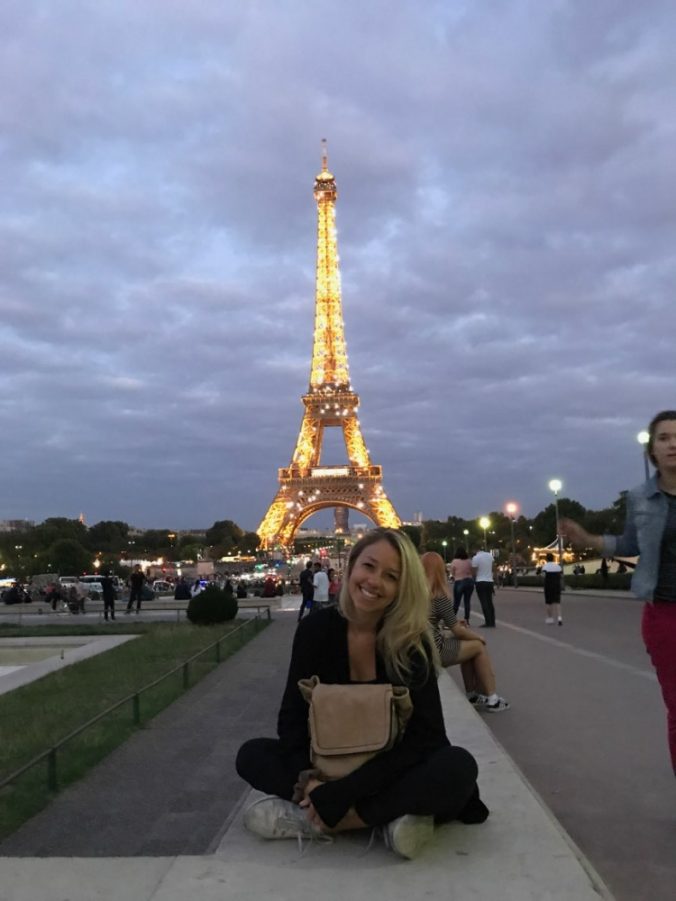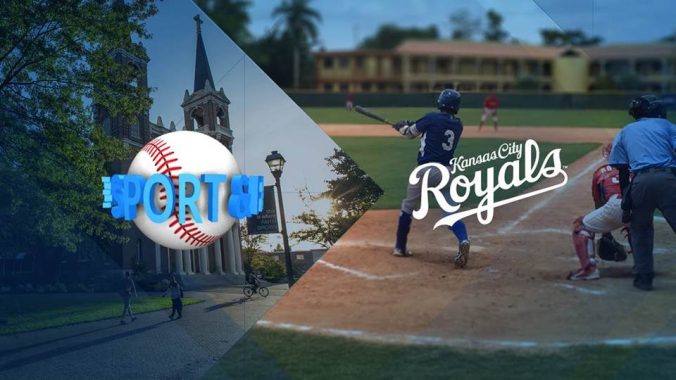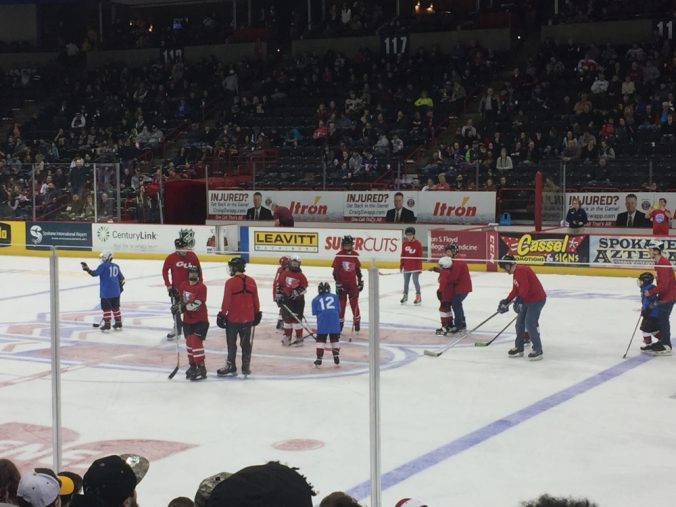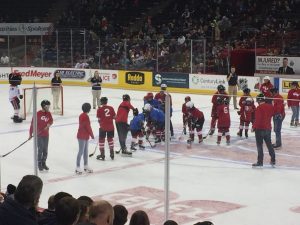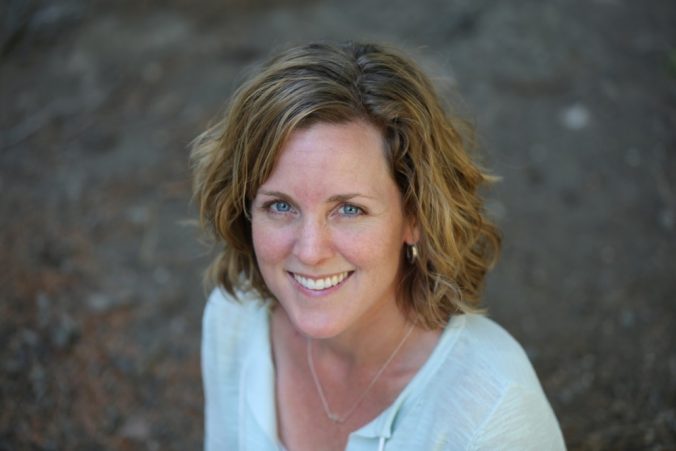This is the second part of a three-part series. To read part I, click here. To read part III, click here.
Gonzaga University’s “Sports and Fitness in the Digital Age” class has teamed up with Major League Baseball’s Kansas City Royals for an exclusive project to help Royals’ baseball players make a transition from the Dominican Republic to their United States affiliates.
The “Sports and Fitness in the Digital Age” class is taught by Gonzaga’s Director of Instructional Design, Justin Marquis. He was connected to the project through Dr. Jimmy Smith. Marquis teaches these students to use different skills that over time build on one another. For example, graphic design skills will help students use social media effectively, and then improve audio skills, interviewing, etc… Developing these skills paves the way for a final video project at the end of the semester. Typically, students choose something they enjoy and use that to create a video that promotes fitness and healthy lifestyle.
However, the final video project was adjusted thanks to this new collaborative opportunity with the Royals. This year, students will create videos for the Latin American baseball players filtering through the Dominican Baseball Academy and coming to the United States. The hope and aim of these videos is to help players better understand basic elements of American lifestyle.
“It’s a great opportunity for students because it gets them a real professional portfolio piece, and one of my objectives for the class is that they will walk out with a portfolio of real projects,” said Marquis.
Though students are responsible for the content and direction of the videos, Jeff Diskin, Director of Cultural Awareness for the Royals, gave a list of potential topics to guide them.
“There is a huge list of topics – like how to respond if the police pull you over, how to go grocery shopping, how to date – and the students have picked topics that are of interest to them,” Marquis said. “We allow some freedom to choose what they want, but now that they have a real client, it’s a lot of fun.”
From this list, students narrowed it down to eight topics to create videos: Safe and Unsafe Driving; Professionalism: How to be professional; How to Cook 5 Basic Meals; Popular Tourist Attractions; Overview of Affiliates; Drug Restrictions; Social Media; and Nutrition. The class divided into groups of about three students each and chose one topic per group.
In class, the students will learn how to interview. From there they learn how to storyboard, then to write a script and beyond. Their job outside of class is to conduct necessary interviews and carry out the filming production. After gaining the raw footage, the final production work is done in class.
“We reconvene once they have the recording to do the editing because that part will be hard,” Marquis said. “We’ll sit down and do the basic layout and do cuts and figure out how to add music, and add all the pieces that are challenging.”
This class aligns so well with this type of project because it is centered on a solid comprehension of social media skills. The focus is to prepare students to enter a line of work and be capable and confident in their social media abilities.
“I had a student last semester who sent me an email saying that he was interviewing for an internship and it was going badly, he was not getting this internship,” Marquis said. “But then the conversation turned to social media and he started talking about the projects we did in class and how we engaged in social media. He got the internship and it was awesome.”
“I believe that students coming out of Gonzaga are going to be more management-type students, particularly in this program,” Marquis said. “I want to give them a real understanding of what the tools look like. If somebody asks them, ‘What’s the resolution for the graphic?’, they should understand what that is and why it’s important.”
The Royals project combines the understanding and skills-based aspects of the “Sports and Fitness in the Digital Age” class. The students use Adobe Premiere, a professional video editing software, to create the videos. This means they get an experience using a professional tool while also acquiring the planning and project management skills required to complete these types of projects in the real world.
Besides management skills, the project promotes the development of leadership skills as well. The students participate firsthand in efforts to ensure that these baseball players do not face significant problems when they arrive to the United States.
“We are helping other people engage and acclimate to American culture,” Marquis said. “This is really a way of helping guide them.”
This project is also an exclusive one: Gonzaga is the only university involved. There are plenty more topics that need to be addressed, and the Royals are committed to having GU fulfill them over the upcoming years.
And Marquis believes that these videos have the potential to help other teams besides the Royals. It is not proprietary information, so he hopes these student-made videos will reach a wider audience.
“It never hurts to have your school associated with professional sports,” Marquis said. “In a sports administration and management program, to say, ‘Oh yeah, our students work with the Royals every year’, is pretty cool.
